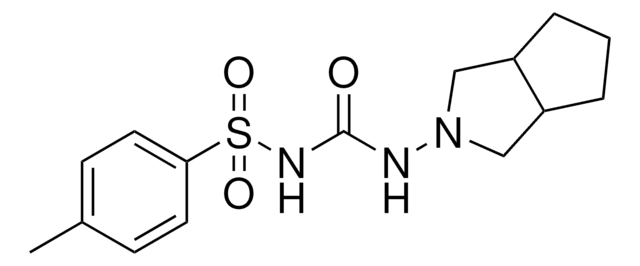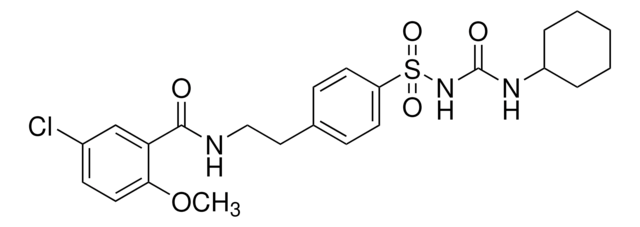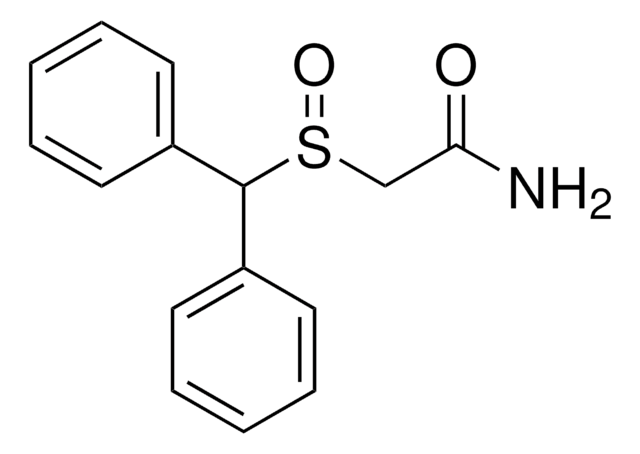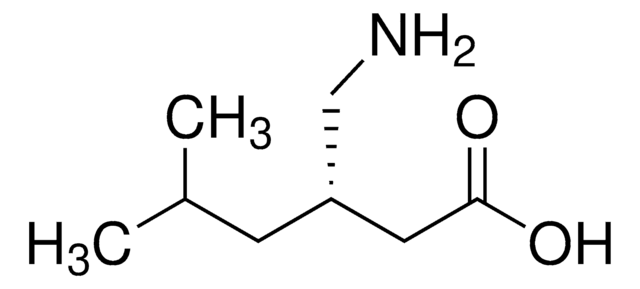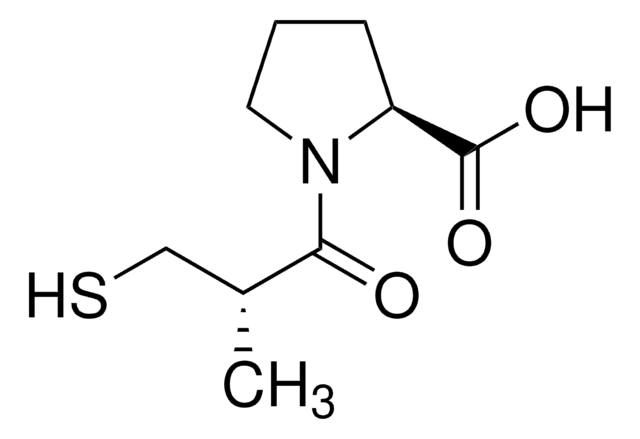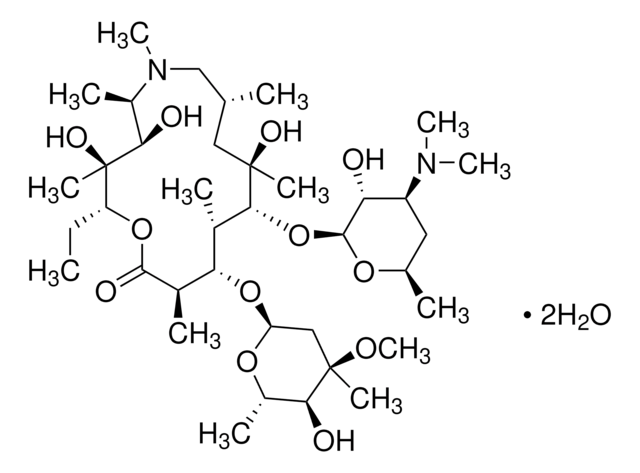G2167
Gliclazide
powder, ≥98%
Synonym(s):
1-(3-Azabicyclo[3.3.0]oct-3-yl)-3-p-tolylsulphonylurea
About This Item
Recommended Products
Quality Level
Assay
≥98%
form
powder
color
white
mp
163-169 °C (lit.)
solubility
methylene chloride: soluble
originator
Servier
SMILES string
Cc1ccc(cc1)S(=O)(=O)NC(=O)NN2CC3CCCC3C2
InChI
1S/C15H21N3O3S/c1-11-5-7-14(8-6-11)22(20,21)17-15(19)16-18-9-12-3-2-4-13(12)10-18/h5-8,12-13H,2-4,9-10H2,1H3,(H2,16,17,19)
InChI key
BOVGTQGAOIONJV-UHFFFAOYSA-N
Gene Information
human ... KCNJ1(3758)
Looking for similar products? Visit Product Comparison Guide
Application
- to study its antiglycative properties and to study its effects on the glycation of bovine serum albumin (BSA) structure
- as a reference standard in solid-phase extraction (SPE) followed by instrumental analysis using liquid chromatography-electrospray ionization tandem mass spectrometry (LC-ESI-MS/MS) for the quantification of water samples
- to develop and validate a simple, sensitive, rapid, economic and isocratic high-performance liquid chromatography (HPLC) method for the determination of gliclazide
Biochem/physiol Actions
Features and Benefits
Signal Word
Warning
Hazard Statements
Precautionary Statements
Hazard Classifications
Acute Tox. 4 Oral
Storage Class Code
11 - Combustible Solids
WGK
WGK 2
Flash Point(F)
Not applicable
Flash Point(C)
Not applicable
Personal Protective Equipment
Choose from one of the most recent versions:
Certificates of Analysis (COA)
Don't see the Right Version?
If you require a particular version, you can look up a specific certificate by the Lot or Batch number.
Already Own This Product?
Find documentation for the products that you have recently purchased in the Document Library.
Customers Also Viewed
Related Content
Discover Bioactive Small Molecules for Lipid Signaling Research
Our team of scientists has experience in all areas of research including Life Science, Material Science, Chemical Synthesis, Chromatography, Analytical and many others.
Contact Technical Service